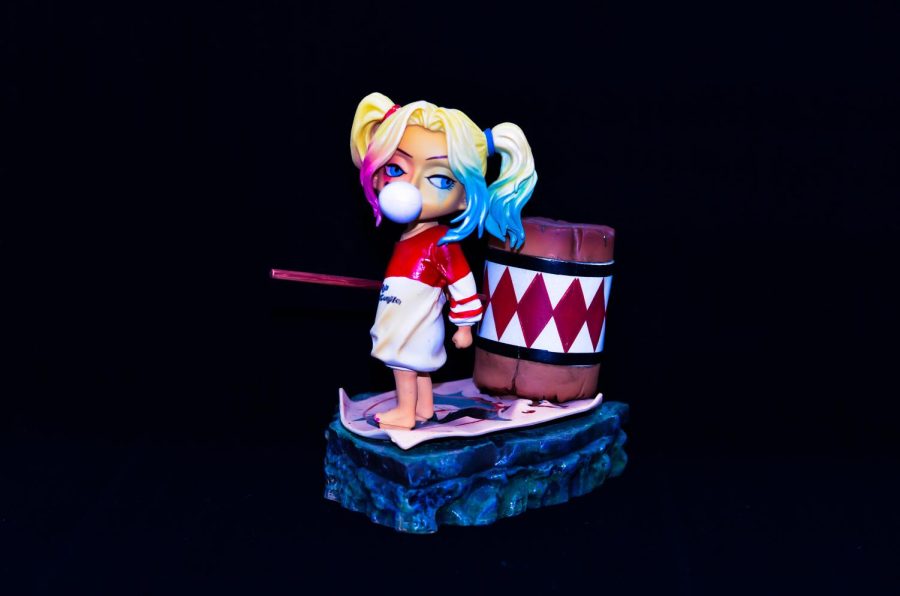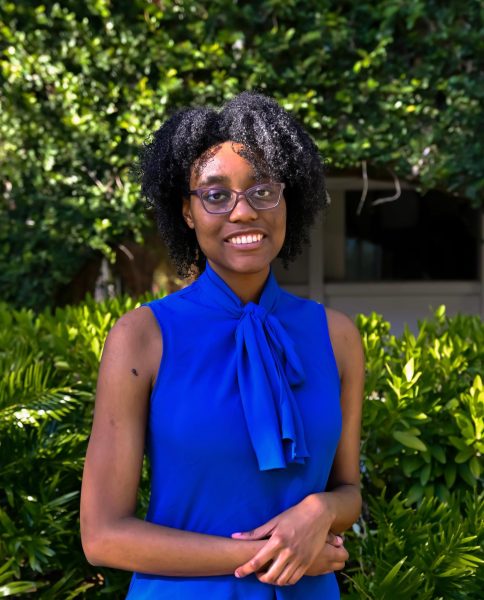How HBO Max’s Harley Quinn Deconstructs DC
For the longest time, Batman has been depicted in DC canon as incorruptible, strong-willed, and a paragon of good and justice. Harley Quinn tears down that cowl this season by depicting a man that is vulnerable to his emotions, flawed, and has baggage just like everyone else in the world.
November 7, 2022
The HBO Max Original animated series Harley Quinn has wrapped its third season this past month, with there already being confirmation of a fourth season, although no release date has been revealed.
The adult animated black comedy series follows DC’s First Lady of Crime, Harley Quinn (voiced by Kaley Cuoco), in her misadventures following her split with the Joker (voiced by Alan Tudyk). The show features a plethora of characters from the DC Universe, whether they be well-known or unknown, and plunges them into a satirical narrative that irreverently challenges the status quo in the DC canon.
The third season focuses on the relationship between Harley Quinn and Poison Ivy (voiced by Lake Bell). After the friends-to-lovers romance plot of the last season, the season premiere aptly titled “Harlivy” opens up with the two on their very violent honeymoon-like trip called the “Eat Bang Kill” Tour. Commandeering Wonder Woman’s invisible jet, the two take a trip that has them watch a dirty film in Superman’s fortress of solitude, kidnap the now-deceased Queen of England before kicking her off the plane (she was still alive when the episode aired but now this moment has a bit of dark humor to it), and visit ‘Edin’ a place created by Poison Ivy years ago that inspires the photokinetic to make a plan to terraform all of Gotham, which becomes the overarching plot of this season.
In this season, Harley and Poison Ivy’s romantic relationship is not only given a lot of focus, but is explored. While the two love each other, the show makes certain to highlight how they can clash with one-another and how they still carry significant baggage from their previous relationships. There’s also how the show has the two resolve most of their troubles through healthy communication. These narrative decisions flesh out both their characters as well their relationship. Greater still, the show’s depiction of a healthy and dynamic LGBTQ+ relationship is worth high praise, especially in Superhero media.
This season has us spend a lot of time with the Batfamily. Nightwing, AKA Dick Grayson (voiced by Harvey Guillen) makes his debut and stands as a reference point for how much the dynamics of the Batfamily have changed over course of the last two seasons with the addition of Batgirl, AKA Barbara Gordon (voiced by Briana Cuoco) and Alfred Pennyworth (voiced by Tom Hollander), who takes on the superhero moniker of The Macaroni. In the midst of some Escape Room madness courtesy of the Riddler (voiced by Jim Rash), Nightwing reveals that under all his edgelord bluster is a young man wracked with deliberating anxiety that is strikingly similar to that of the average college student. This depiction of Nightwing is yet another example of how Harley Quinn takes DC text and reinterprets it in a way that, while being humourous, pokes holes at the original mainstream source material and has an added layer of realism.
An example of a character that has benefitted from such changes is none other than Batman, AKA Bruce Wayne (voiced by Diedrich Bader). This season has the Dark Knight at his lowest point in the show with his troublesome relationship with Catwoman, AKA Selina Kyle, and the still unresolved trauma of his parent’s death. The murder of Thomas and Martha Wayne is one of those events in superhero media that has been depicted to death (mind the pun). With good reason, though, as it is the life-defining event that causes Bruce to take on the mantle of Batman and fight crime in the first place. This event becomes significant in this season as it is at the center of Bruce Wayne taking on a more antagonistic role in later episodes of the season.
In what is undoubtedly the best episode of the season, “Batman Begins Forever,” meshes comedy and tragedy as Harley’s Crew takes a trip into Bruce’s mind. Inside, the memory of the Waynes’ death is on a non-stop loop in what is described to us by Doctor Psycho (voiced by Tony Hale) as “reversed repressed memory,” in which all other memories, besides the traumatic one, are repressed. In essence, Bruce is reliving the death of parents everyday in his head. What makes this worse? He is doing this to himself as he believes that he is at fault for what happened. This tragic state of affairs is hilariously juxtaposed against most of Harley’s crew, who find that it’s getting old real fast—echoing many sentiments felt by the DC fandom whenever another Batman project depicts it—while Clayface (voiced by Alan Tudyk) unsuccessfully tries to use this situation for research for his movie role. Harley, whose affinity towards altruism has been growing this season, sympathizes with the orphaned billionaire and falls back on her psychiatric instincts to help him. Yes, this show has Harley Quinn take the freakin’ Batman to therapy. The episode ends with the reveal that the real Bruce intends on using Poison Ivy’s serum to revive his parents at the cost of Gotham falling victim to plant zombies. With this twist, Harley Quinn put the Dark Knight into a role befitting that of a villain.
For the longest time, Batman has been depicted in DC canon as incorruptible, strong-willed, and a paragon of good and justice. Harley Quinn tears down that cowl this season by depicting a man that is vulnerable to his emotions, flawed, and has baggage just like everyone else in the world. In contrast to him, Harley Quinn starts acting more like a true hero with her saving Gotham City from both him and Poison Ivy in the end.
I really loved this season. I laughed out loud at Catwoman and Batman literally singing about their relationship problems at couples therapy (courtesy of the supervillain, Music Meister), I was intrigued by the trials and tribulations of Harley and Poison Ivy’s relationship, and I got excited for the future as I saw the reformed, and mayor-elect, Joker arrest Bruce Wayne for tax evasion.
In terms of criticism, I would say that I wasn’t a huge fan of the Thomas Wayne biopic subplot this season. While it did provide the audience with some meta jokes and the season finale with the very fitting backdrop of the Thomas Wayne movie premiere, I find that it didn’t do much to further develop Clayface as a character. In comparison to other members of the main cast, Clayface hasn’t gone through a dramatic shift in his character or shown any sort of poignancy of his own. I feel that there was a wasted opportunity for this subplot to coincide with Bruce’s plotline in a way that could have been very meaningful. I was also disappointed that most of the Batfamily besides Batman weren’t bigger players in that particular plotline as well.
Since its premiere in 2019, Harley Quinn has sought to challenge conventions in the superhero genre, add layers of realism in DC, and take a hit at the oppressive systems of power that simultaneously exist in its world and ours. This recent season has Batman stray from his heroic path over the same reason he started down it, addressed politics and economic disparity through the Mayor Joker storyline that sees the Joker spouting policies such as free universal healthcare and dismantling the Gotham City Police Department, and ends with Harley Quinn starting to take a path that lies in-between good and evil.
This change in moral alignment is a far cry from Harley’s motivations in the first season of the show, which had her breaking away from her toxic relationship with the Joker to become a supervillain in her own right. This evolution over the course of the show’s three seasons mirrors the shift that the character of Harley Quinn has had in the DC canon over the years. Since her first appearance in Batman: The Animated Series, Harley Quinn has caught the imagination of many DC and comic fans alike. She has gone from simply being the Joker’s girlfriend to an engaging anti-heroine. This evolution also extended to Harley Quinn’s relationship with Poison Ivy. Just like in the show, the nature of their relationship in the comics has gone from friendship to romance. Harley Quinn and Poison Ivy are a part of the growing roster of LGBTQ+ characters in DC Comics, which include the likes of Timothy Drake (AKA Red Robin) and Kate Kane (AKA Batwoman). A similar evolution can be seen with Margot Robbie’s Harley Quinn in the DCU films, going from simply psychotic eye-candy in Suicide Squad (2016) to a graceful dynamic one-woman army in The Suicide Squad (2021).
Harley Quinn has been confirmed for a fourth season on HBO Max. This is cause for great excitement and even greater relief to many DC and HBO Max watchers. The show is fortunate enough to have been spared the fate of many other animated and scripted works on the HBO Max streaming service following the cuts made by Warner Bros. Discovery; the mass media conglomerate formed following the merger of WarnerMedia and Discovery, Inc. In the aftermath of the merger, CEO David Zaslav has made dramatic changes to the company and especially to HBO Max. This is evident in the many films and television shows that have been purged from the streaming platform such as Infinity Train, Moonshot, and Genera+ion.
Not only were these shows canceled, but they were taken off the platform entirely. As of right now, there is no legal way of watching them. With that, these works become what is known as lost media. Even worse, their creators weren’t given a heads up about this before their shows got axed. Many criticized this move, especially since these purges largely targeted minority-led and animated works. Critics decried this situation as yet another example of Hollywood taking the medium of animation for granted and as an attempt to eliminate diversity in media.
Not even DC content was spared from the slaughter as the company decided to scrap the upcoming Batgirl film entirely. The film was supposed to star Afro-Latina actress Leslie Grace as Batgirl, with Micheal Keaton returning as Batman, and Daniel Fraiser as Firefly. The movie was already finished and fully filmed when Warner Bros. Discovery decided to give it the middle finger.
In context of these events with Warner Bros. Discovery, HBO Max, and DC, the significance of Harley Quinn, its continued success, and its survival during this time cannot be overstated. Boasting both strong female characters and strong LGBTQ+ representation, this animated show presumes to chart a new course for both DC and the entertainment industry as a whole.








